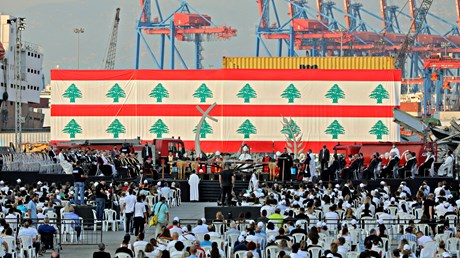Despite history of mutual wariness, rapidly deteriorating economy may finally bring together evangelicals and Catholics in service of society.

The value of Lebanon’s largest denomination of lira is now worth $4. It used to be able to purchase a ticket to Broadway. Today, amid a currency crisis that has pushed poverty rates to 82 percent, it can buy a gallon of milk.
The minimum wage—pummeled by the world’s third-worst inflation rate—is now barely $20 a month. And the worst suffering is in the nation’s north, where 6 in 10 children are regularly skipping meals.
Lebanon’s Baptists called for help.
“We came to express our deep concern for the suffering of Christians, and everyone,” said Elijah Brown, the US-based general secretary for the Baptist World Alliance (BWA), who visited mid-January.
“You are in our prayers.”
His words were directed to Bechara Boutros al-Rai, patriarch of the Maronite Church, an Eastern Rite Catholic community. Expressing solidarity with the 81-year-old cardinal and leader of Lebanon’s largest Christian denomination was a priority to the local Baptist convention, and Brown came with an invitation.
The BWA will call America’s 40 Baptist colleges to a conference in the US focused on supporting Lebanese education. Cohost with us, Brown asked, in partnership with US Catholic universities.
“It is a way to strengthen one another,” he said, “sending a message of unity and nonsectarianism.”
Lebanon is divided roughly in thirds: Sunni Muslim, Shiite Muslim, and Christian. Evangelicals represent about 1 percent of the 6 million population, far behind Maronites, Greek Orthodox, and other sects.
But Protestant-heritage schools like American University of Beirut and Lebanese American University stand alongside the Catholic St. Joseph’s University and the Orthodox ...
from Christianity Today Magazine
Umn ministry


.gif)

.gif)
.gif)
